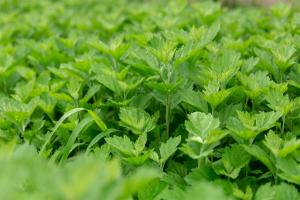Introduction
When it comes to watering plants, many people wonder if tap water is the right choice. With concerns about pollutants and chemicals, it's understandable to question whether tap water can harm your plants or not.
Tap Water Composition
Tap water is safe to drink for humans, but it may not always be ideal for plants. In addition to the minerals and nutrients that plants need to thrive, tap water can also come with added chlorine, fluoride, and other chemicals. While these chemicals are typically present in small quantities and shouldn't cause any harm to plants, they can accumulate over time and may cause issues with plant growth.
Types of Plants
The type of plant you're growing can also impact whether tap water is the best option. Some plants, such as succulents and cacti, require minimal watering and can tolerate tap water as long as the soil is allowed to dry out between watering. Other plants, such as ferns and orchids, are more sensitive to chemicals and may benefit from using distilled or filtered water.
Environmental Factors
Tap water can be affected by the environment in which it's sourced, which can vary from region to region. Soil pH, water hardness, and other local factors can influence the quality of tap water and whether it's ideal for plant growth. If you're concerned about your tap water's quality, consider having it tested or using a filtration system before using it on your plants.
Alternatives to Tap Water
If you're unsure whether tap water is right for your plants or if you want to avoid the potential risks, there are several alternatives that you can consider. One option is to use rainwater, which is naturally filtered and can provide the minerals and nutrients that plants need. Another option is to use distilled or filtered water, which can remove any impurities and chemicals that may be present in tap water. However, keep in mind that both of these options may require additional equipment or setup.
Conclusion
The best choice for watering plants depends on several factors, including the type of plant, environmental factors, and tap water quality. While tap water is generally safe for most plants, consider using an alternative if you're concerned about chemicals or pollutants. Always make sure to give your plants the right amount of water and avoid overwatering, as this can be detrimental to their growth.

 how many times do yo...
how many times do yo... how many planted tre...
how many planted tre... how many pine trees ...
how many pine trees ... how many pecan trees...
how many pecan trees... how many plants comp...
how many plants comp... how many plants can ...
how many plants can ... how many plants and ...
how many plants and ... how many pepper plan...
how many pepper plan...































